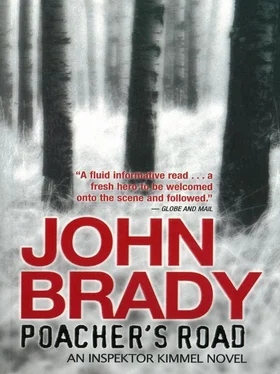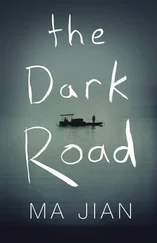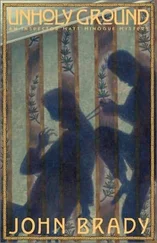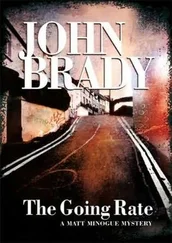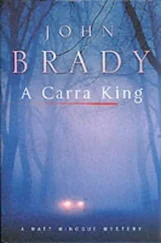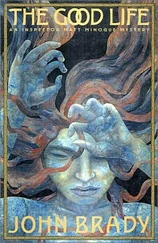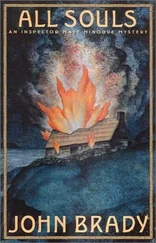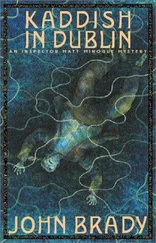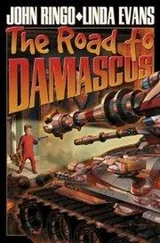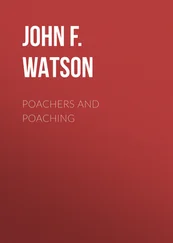John Brady - Poachers Road
Здесь есть возможность читать онлайн «John Brady - Poachers Road» весь текст электронной книги совершенно бесплатно (целиком полную версию без сокращений). В некоторых случаях можно слушать аудио, скачать через торрент в формате fb2 и присутствует краткое содержание. Жанр: Полицейский детектив, на английском языке. Описание произведения, (предисловие) а так же отзывы посетителей доступны на портале библиотеки ЛибКат.
- Название:Poachers Road
- Автор:
- Жанр:
- Год:неизвестен
- ISBN:нет данных
- Рейтинг книги:5 / 5. Голосов: 1
-
Избранное:Добавить в избранное
- Отзывы:
-
Ваша оценка:
- 100
- 1
- 2
- 3
- 4
- 5
Poachers Road: краткое содержание, описание и аннотация
Предлагаем к чтению аннотацию, описание, краткое содержание или предисловие (зависит от того, что написал сам автор книги «Poachers Road»). Если вы не нашли необходимую информацию о книге — напишите в комментариях, мы постараемся отыскать её.
Poachers Road — читать онлайн бесплатно полную книгу (весь текст) целиком
Ниже представлен текст книги, разбитый по страницам. Система сохранения места последней прочитанной страницы, позволяет с удобством читать онлайн бесплатно книгу «Poachers Road», без необходимости каждый раз заново искать на чём Вы остановились. Поставьте закладку, и сможете в любой момент перейти на страницу, на которой закончили чтение.
Интервал:
Закладка:
Oma Nagl walked beside him. Opa Nagl walked beside Felix’s mother on the valley side, explaining something about turnips. Lisi was stuck with Edelbacher behind. Felix was pleased by that.
Well, he had made it. There had been tears and some his own because he hated to see his mother sad. As expected, he had sat beside his Opa Kimmel and two aunts of his father’s. He had been attentive to his grandfather’s rising and sitting, to his finding the hymn, and to guiding him down the steps afterwards, walking stick and all. Naturally, he made sure to not let it look like he was helping.
Felix had felt eyes on him during the service. He had concluded that they had been his mother’s. It was as though by staring at his back she could encourage him, or maybe to remind him that it would be over soon, this task of being his grandfather’s male heir here beside him for this hour.
From time to time during the service, he’d managed to steal glances at his grandfather’s profile. Now in old age his white hair seemed to make him look almost benign, sometimes even fragile.
The lines on his face, by his eyes especially, did not look like perpetual frowns so much. There was the meticulously shaved face, the closely cut hair little more than bristles, halfway toward his scalp as it had been for 60, or even 70 years, and the bushy eyebrows jutting out, all accompanied by the faint smell of shaving soap Felix always remembered. He’d heard the soft sighs as he’d sat and stood, the firm but flat way he had of saying the prayers. But none of these signs allowed Felix to relax around him, or even to feel much pity for this old man, his own grandfather, who had lived long enough to bury his own son.
Outside the church later his grandfather Kimmel had stood next to his in-laws, a little distracted looking, nodding at times. The small talk was painful. Felix saw that the look on his face was still there. It was that look of restrained politeness, and a distant interest, as though other matters awaited his thoughts and he wished to be away. In bygone years it had been closer to impatience, or even disdain.
Felix had walked him back to his car. He had even asked his grandfather if he would change his mind and come to the restaurant. He wondered how good an act that had been, and if his grandfather had not seen through it. With a mixture of relief and guilt, he’d watched the old man drive off, returning the wave that the smaller group now made. Come by when you’re not busy, the old man had said, and given him a dry, firm handshake. There were things of his father’s that Opa Kimmel wanted to give him.
The group walked down the lane in a ragged, talkative clump.
From behind, Felix heard snatches of Edelbacher’s enthusiasm for strudel, some of his scorn for how the amalgamation of the police forces was proceeding, and the beginnings of a rant about how people took too much for granted these days. Opa Nagl had moved on from turnips to organic crops, and then somehow made it to the topic of topless beaches in Italy. For a moment, Felix’s addled brain tried to trace back how this had happened: was it a remark someone had said, his mother perhaps, about him finally getting time off, and heading for Italy with Giuliana?
Felix glanced over his shoulder. Behind Lisi and the towering Edelbacher were a few more than a dozen people. The others, the 30 or 40 more he was surprised to see in the pews, had gone off to their jobs, or home.
But there was Aunt Gusti, the Ancient One, a widow for many years, from the dorf up near Knipplfeld. She was walking sideways, like a horse, next to Willi Hartmann, another neighbour from the old days. Willi Berger Willi was his local name had returned from the war an amputee and unable to reclaim his passion for climbing these mountains. Somehow he had returned to farming, and even now, in his eighties, was robust. Opa Nagl had passed on some wag’s story that Berger Willi was determined to get to at least 88.
The joke was that Berger Willi had been an artilleryman, his expertise the fearsome 88.
Felix heard a comment from Opa Nagl, something about topless men at the beaches in Italy, drift over. Such lardy men could only be Germans, of course, not the adaptable and courteous Austrians. The smiles passed down through the group in a ripple.
Having a colourful local character for a grandfather growing up had to count for something, Lisi had said many times before. Felix had sometimes wondered how a man like his Opa Nagl, a man who spoke out, and mocked things that nobody wanted to talk about, in public at least, how it was that he could be so well liked, and his company sought after in the village, for being so…
“Colourful,” he thought again. Was there no other word? No doubt Lisi had also heard the same stories Felix had: of how Opa Nagl had been outspoken, of how he had even lost a tooth in a scrap over politics. It was well after the war had ended, and it was because he had been serious about his politics then. Being so clearly left at that time was an improbable thing. That was even more so for a farmer up here, in a village where the Soviets had squatted for long after the war. Opa Nagl had been more than willing to concede that Stalin was a lunatic certainly he was! and the Russians could be barbarians undoubtedly so! but a few times he had used his fists to defend his claim that none of these meant socialism wasn’t good, that socialism wasn’t Austria’s future.
So well liked by almost everybody, Lisi had reminded him. She didn’t need to say the name, of course. They hadn’t talked about the enmity between the two sides of the family since then. It had been one evening not long after their father’s funeral, one of those strangely giddy times, days when nobody had slept, when nights and days seemed little different. There had been a surreal look to everything, Felix recalled, a dreamy quality to the talk and the faces.
It was a time when grief and laughter collided, and memories cratered into loss so sharp it stabbed, and odd things were dredged up, even odder conversations.
Opa Nagl didn’t hate Opa Kimmel he had just given up on him years ago. He had mocked him, or to be accurate, people like him who believed in that stuff. No doubt it had turned sour and bitter by times. It hadn’t helped, of course, that Opa Nagl could come up with barbs: “That housepainter arshloch with the moustache, the one who just about burned the world to the ground for some stupid Reich dream!” So savage as to be memorable, word for word.
But the little pantomimes he did, with his forefinger for a moustache, and his arse in the air goose-step one had surely been performed sometime in the past for the benefit of Opa Kimmel. How else to explain the loathing, the silences, one about the other, over the years? Felix’s mind went back to the goose-stepping troublemaker.
“What are you smiling about?” his mother asked. “The good memories?”
He saw her eyes were less red now. She had that half-smile back.
“Those too,” he managed. He glanced over at Opa Nagl.
“Actually, I was just thinking about Opa here, listening to him.
The things he comes up with.”
“Unique,” she murmured, with a look in her eye that bespoke long practice at summing up her father. “There’s no doubt.”
“How different,” Felix said, without thinking.
She gave him an inquisitive look.
“From the other one, I meant.”
His mother looked away, and he could not see if she had kept her smile. Laughter broke out behind now, and he turned. Now, somehow, Opa Nagl had brought up the topic of teeth, or horses, or something.
“Of course, I’m right,” said Opa Nagl. “You want to know a good husband, a good wife, before you go to the church to marry?
Look at their teeth. It’s like a horse.”
Читать дальшеИнтервал:
Закладка:
Похожие книги на «Poachers Road»
Представляем Вашему вниманию похожие книги на «Poachers Road» списком для выбора. Мы отобрали схожую по названию и смыслу литературу в надежде предоставить читателям больше вариантов отыскать новые, интересные, ещё непрочитанные произведения.
Обсуждение, отзывы о книге «Poachers Road» и просто собственные мнения читателей. Оставьте ваши комментарии, напишите, что Вы думаете о произведении, его смысле или главных героях. Укажите что конкретно понравилось, а что нет, и почему Вы так считаете.
